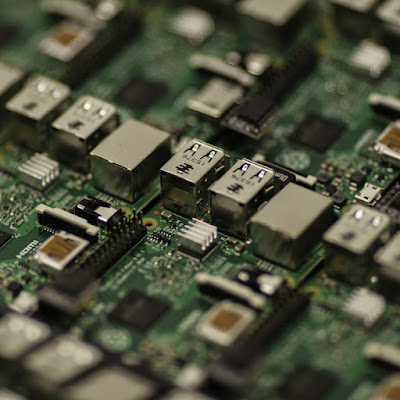Unlocking the Power of Capacitors: A Comprehensive Guide
Unlocking the Power of Capacitors: A Comprehensive Guide
Introduction
Capacitors are one of the unsung heroes of the electronics world. These unassuming components play a crucial role in a wide range of electronic devices, from your smartphone to your car's ignition system. In this comprehensive guide, we will delve deep into the world of capacitors, exploring their significance, benefits, applications, and much more. Whether you're an electronics enthusiast, a DIYer, or just curious about how your gadgets work, this article will shed light on the fascinating world of capacitors.
Understanding Capacitors
Before we dive into the nitty-gritty of capacitors, let's start with the basics. A capacitor is an electronic component that stores and releases electrical energy in a circuit. It consists of two conductive plates separated by an insulating material known as a dielectric. When voltage is applied across the plates, they store electrical charge, and this stored energy can be discharged when needed.
The Significance of Capacitors
Capacitors are integral to the functionality of numerous electronic devices and systems. Here are some key reasons why capacitors are so significant:
1. Energy Storage: Capacitors store electrical energy temporarily, making them essential for stabilizing voltage levels and providing power during brief interruptions, such as in uninterruptible power supplies (UPS).
2. Filtering and Smoothing: They are used to filter out noise and ripple in power supplies, ensuring a clean and stable voltage output.
3. Timing and Oscillation: Capacitors are vital components in timing circuits and oscillators, contributing to the precision and accuracy of various electronic devices.
4. Motor Starters: Capacitors kick-start electric motors in appliances like refrigerators and air conditioners, ensuring a smooth and efficient operation.
Types of Capacitors
Capacitors come in various shapes and sizes, each designed for specific applications. Here are some common types:
1. Electrolytic Capacitors: These are often used in power supply circuits and offer high capacitance values.
2. Ceramic Capacitors: Known for their small size and stability, ceramic capacitors find applications in RF circuits and decoupling.
3. Tantalum Capacitors: These are used when a compact, reliable capacitor with high capacitance is required.
4. Film Capacitors: Film capacitors, including polyester, polypropylene, and mylar capacitors, are used for their low leakage and high stability.
5. Supercapacitors: Also known as ultracapacitors, these store a significant amount of energy and are used in energy storage systems and regenerative braking in vehicles.
Applications of Capacitors
Now that we've covered the basics, let's explore the diverse applications of capacitors across different industries and devices.
1. Consumer Electronics: Capacitors are found in smartphones, laptops, televisions, and audio equipment, where they stabilize voltage, filter noise, and enable touchscreens.
2. Automotive Industry: In vehicles, capacitors are crucial for starting engines, managing airbag systems, and providing backup power in case of electrical system failure.
3. Industrial Automation: Capacitors play a pivotal role in industrial automation systems, ensuring the smooth operation of machinery and control systems.
4. Renewable Energy: Capacitors are used in solar inverters and wind turbines to store and release electrical energy efficiently.
5. Aerospace and Defense: In aviation and military applications, capacitors are used in communication systems, radar equipment, and missile guidance systems.
6. Medical Devices: Medical equipment relies on capacitors for precision timing, energy storage, and signal filtering.
Advantages of Using Capacitors
Capacitors offer several advantages that make them indispensable in the electronics industry:
1. Rapid Response: Capacitors can discharge energy quickly, making them ideal for applications where instant power delivery is crucial.
2. Longevity: Capacitors have a longer lifespan compared to some other electronic components, reducing the need for frequent replacements.
3. Efficiency: They improve the efficiency of electrical systems by stabilizing voltage and reducing noise.
4. Size and Weight: Capacitors are available in compact sizes, making them suitable for devices with space constraints.
Choosing the Right Capacitor
Selecting the appropriate capacitor for your project is essential for optimal performance. Factors to consider include capacitance value, voltage rating, ESR (Equivalent Series Resistance), and the type of dielectric material. Capacitor datasheets provide valuable information for making the right choice.
Conclusion
Capacitors are the unsung heroes of the electronic world, silently powering countless devices and systems that we rely on daily. Their ability to store and release electrical energy makes them indispensable in applications ranging from consumer electronics to aerospace. By understanding their significance, types, and applications, you can harness the power of capacitors and take your electronic projects to the next level. Whether you're a seasoned engineer or a curious hobbyist, capacitors are a fundamental component that deserves your attention and appreciation.
